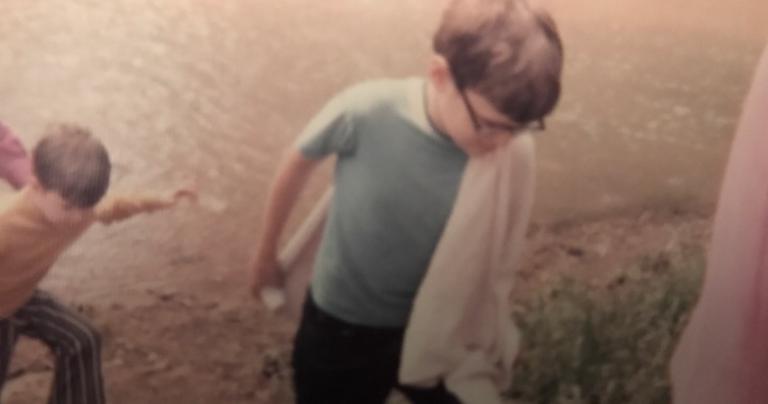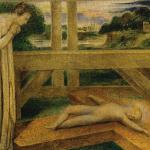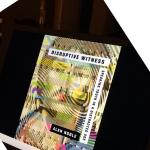I am very nearsighted, but nobody noticed for a bit. Obviously I could not tell my vision was bad as I had nothing with which to compare it! My vision was just fine, I was getting along, even in first-grade. Mom and my teacher noticed, however, I was holding my books very close in order to read. Sometimes by guesses about what was on the board at the front of the room were wrong.

My parents got me glasses.
I recall the wonder of seeing the detail in the stained glass of Dad’s church for the first time. There was (I think) a lamb, a flag, and a crown. Glorious! Yet the other thing, the sadder thing, was that I could also see walls around me that needed painting. My room was much messier than I thought. In fact, all around were cracks, defects, and other issues that my near sightedness kept me from seeing.
The flaws were really there, so seeing them was not (in itself) bad, but good. The truth is. Yet sharp vision actually impeded my drawing right conclusions about what I was seeing. How could this be? Shouldn’t seeing better always help us? Ideally, but we are not ideal reasoners.
In a dialog, Plato has Socrates say
… men with duller vision have often, you know, seen things before those who see more sharply.*
There are two uses of “see” here: there is the report of our eyes (“I see you!”) and the conclusions draw from them (“I see that you are happy.”)
My experience of nearsightedness helps me see how this could be true. A boy (me!) with duller vision sees the whole, but few details. People looked more alike than not alike to me unless I knew them well enough (like my family) to have seen them up close. This made me less likely to draw the erroneous conclusion that people were “gross” based on so small a flaw. I could not see it (not good), but that duller vision meant that overfocus on a flaw was hard for me to do.
I have never forgotten that everyone looks more alike than not alike and that our distinctions, while important in many contexts, should never overcome our great general similarities. The boy with duller vision also thought his car was pretty cool looking, it was a red Pontiac, and he was right. That was a great car, but I lost track of how great it was when I could see all the dings. The boy with duller vision saw the good of the car (which was there) and missed the scratches (also there.) The boy with better vision lost the whole for the problems.
I did not have to do that: I could have seen both and that would have been best: good vision that does not overfocus.
Here’s a practical way, however, my experience with nearsightedness has helped me. Sometimes I will look at a room and “fuzz” my vision so I can see what it looks like generally before I take a look the flaws. Sometimes I intentionally look at the world without my contacts or glasses. This helps me see what is generally true and then I try to recall that truth when I focus.
The kid with duller vision can sometimes see things before those who see more sharply.
——————————
*Plato, Republic 596a (translation by Bloom)












